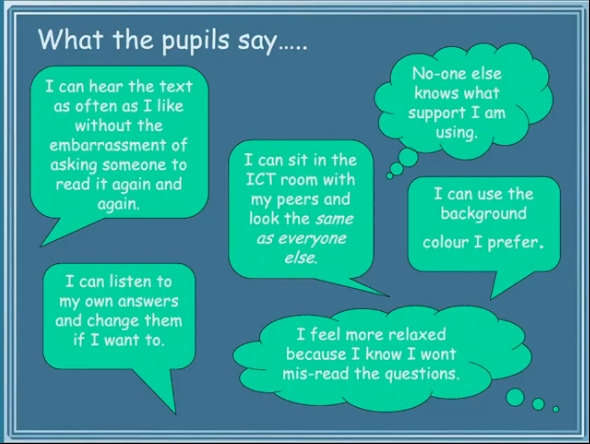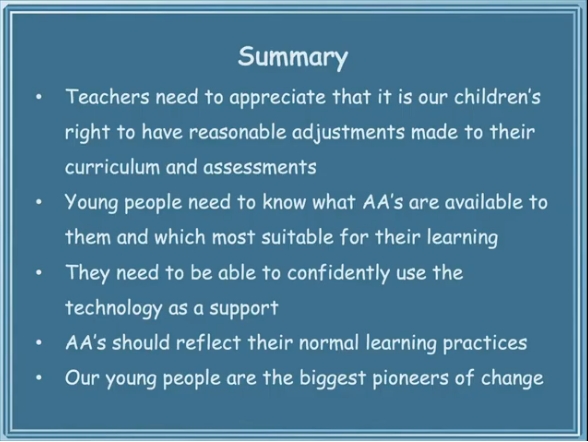 Newsletter: join thousands of other people
Newsletter: join thousands of other people
Once a month we'll send you an email with news, research and thoughts, as well as training courses and free webinars you may wish to attend.
Posted by Paul Nisbet on the 29th April, 2021

Dyslexia Scotland have published an excellent video workshop by Dawn Roberts and Innes Roberts on the use of assistive technology in assessments, and more broadly . The video is well worth a view if you are a teacher, parent or student using digital technology in assessments this term.
Addressing Dyslexia Toolkit Home page (in the New section)
Assessing and Monitoring (Under Further Professional development, at the bottom of the page).
In the video, Dawn and Innes talk about why digital question papers and assessments are so helpful and Innes demonstrates how he uses a computer reader (in this case, the free Ivona MiniReader) and Scottish computer voice to read the questions, and how he types and draws his answers. Innes says:
I like digital papers because the exam answers will be more fairly compared to my peers because I know that I have read the question accurately and my spelling has been corrected for me.

Dawn discusses the advantages of using technology compared to human readers or scribes, and the practicalities of organising the technology. She points out that:
Using a reader or a scribe is actually a very difficult skill to master. In an average secondary school there'll be very limited opportunity to practice this skill during class time. Human readers are also not permitted to be used in the literacy element of the National 5 exam but a digital reader is allowed.
Identifying the most appropriate additional support in class and for assessments is a crucial task for teachers and staff, especially now that so many students are identified as requiring additional support needs, and Dawn gives really useful insights into how this can be organised and how evidence for the need for Assessment Arrangements can be obtained. Innes says:
My assessment arrangements changed going from Nat 5 to Higher. In Maths for example I only had extra time in Nat 5. My teacher became concerned about the amount of silly errors I was making when doing my practice Higher questions in class. She suggested that I use digital readers to listen to the questions and this resulted in fewer errors.
As we all know, making technology work can be a challenge and it's essential that it does work for assessments, and Dawn details how they try to ensure the technology is reliable in Gleniffer.
Dawn and Innes emphasise that students must learn how to use technology and practice from an early age, and that assistive technology tools and accessible digital resources must be available in class. Dawn discusses free tools for accessing curriculum resources, including textbooks from Books for All and the role of audio books. This of course has become even more important over the past year when so many students were learning at home using technology.

The 2020 conference was held online and featured:
Keynote speeches from
Workshops featuring:
The film pack with all the presentations is available for £30 from Dyslexia Scotland.
The 2021 conference will be held (either online or maybe face to face!) on Saturday 2 October.
Once a month we'll send you an email with news, research and thoughts, as well as training courses and free webinars you may wish to attend.
Our social media sites - YouTube, Twitter and Facebook